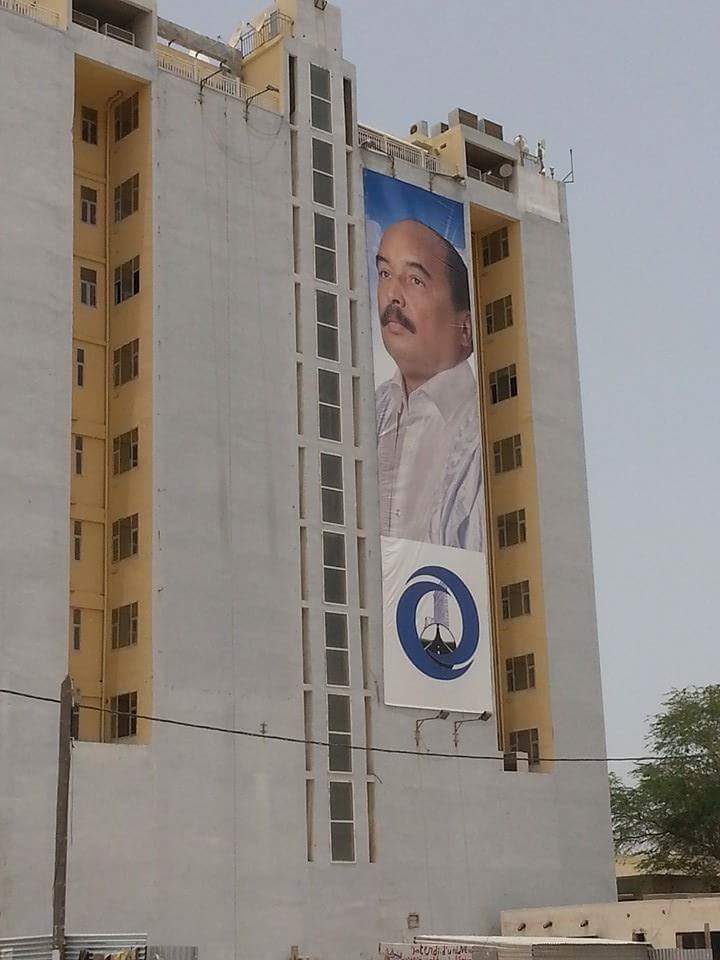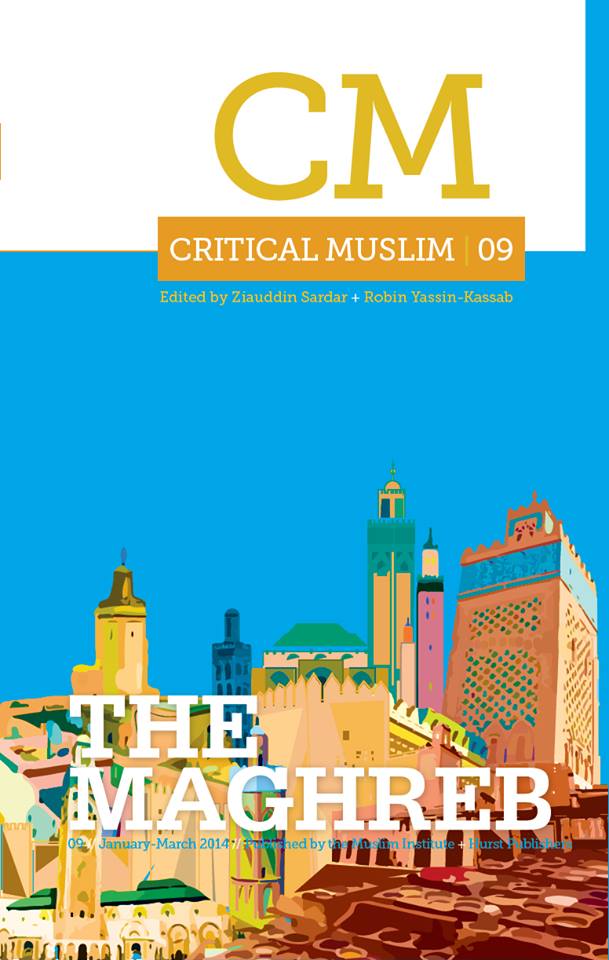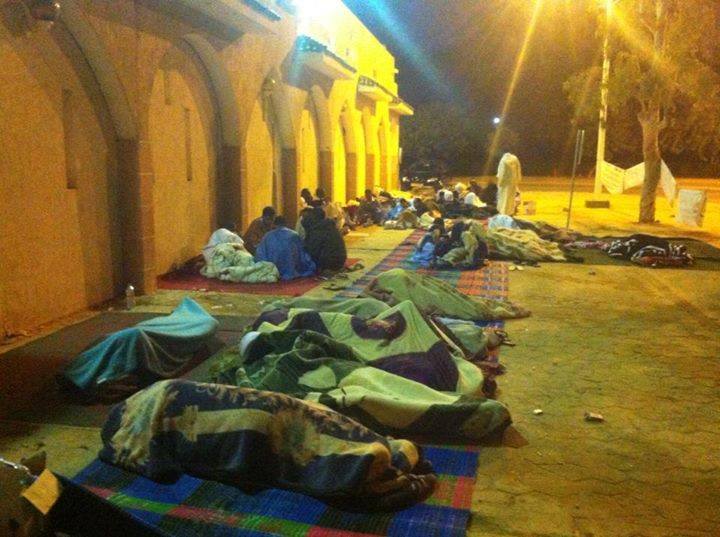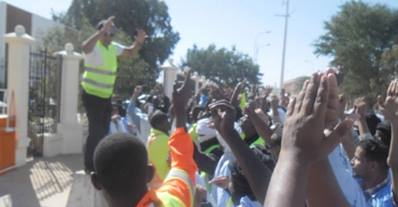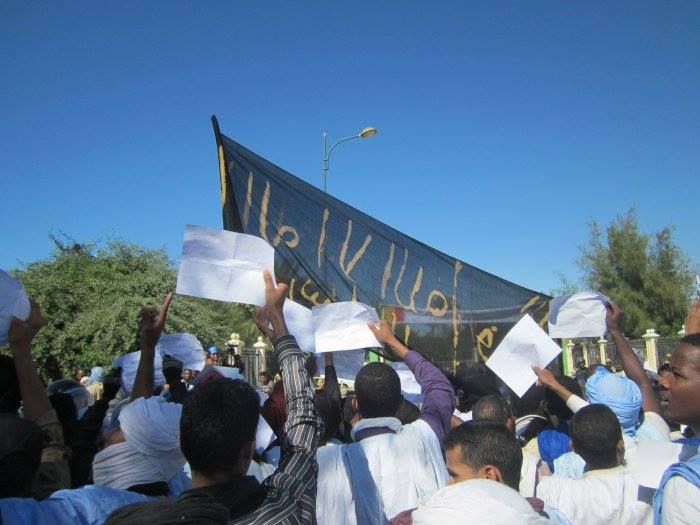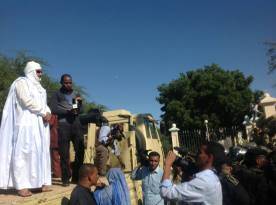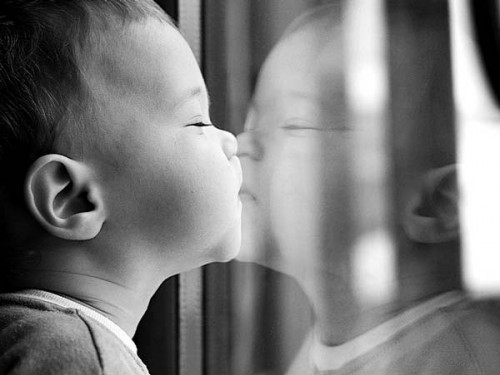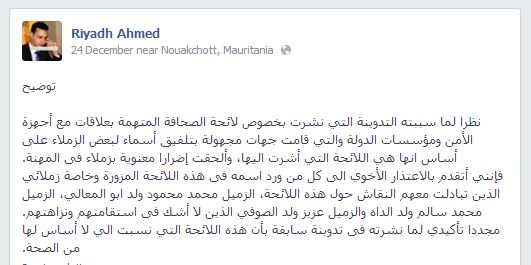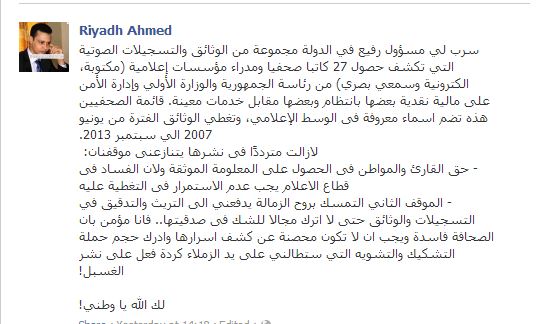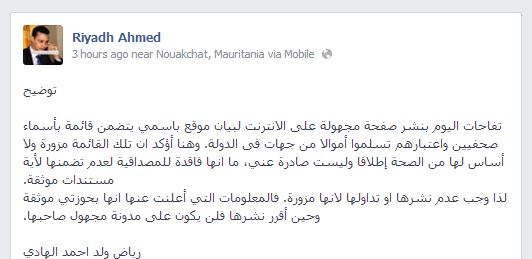A minor re-draft of the article I wrote for Critical Muslim‘s Maghreb edition (08 – Jan 2014) which was drawn from my interpretation of Mauritanian culture and society as seen from a distance, as an outsider. The intended audience is the same as ever: one which is almost completely unaware of the existence of this country, its people, and their lifestyle apart from the occasional tabloid-style stories.
What I am about to share with you may seem oddly fascinating, and even a little mysterious, as indeed it is, to outsiders, but not to Mauritanians. To Mauritanians, everything you are about to read is just part of everyday normal life and, being rather conservative, they don’t necessarily relish the idea of being put under the microscope as some kind of social curiosity, and quite rightly. As Mauritanian social network activist Nasser Weddady explains, “Mauritanians are very conscious that they and their country are a footnote in the world, and more so in the Arab world itself. We are almost never talked about, very few people can even locate us on the map. Most Arabs don’t even know that we share with them a common language and in the case of some, common ancestry. Furthermore, when fellow Arabs talk about us, the clichés and stereotypes veer quickly into the realm of the exotic.” [1]
Mauritania covers more than a million square kilometers of mainly arid Saharan desert, its two main population centres punctuating the 800 kilometre Atlantic coastline. Stretching east into the Sahel from these two pins on the map, the angular northern borders wedge against Morocco, Algeria and Mali, while the Senegal river valley softens the outline along the southern edge. The immense desert contains a wealth of natural resources such as copper, gold, gypsum and iron, but the extractive industries offer few employment opportunities for unskilled labour. Meanwhile, persistent drought, desertification and poverty in the interior gradually pushes tens of thousands of Mauritanians to abandon a life of humble self-sufficiency as nomadic livestock herders or smallholders in rural village communities. They arrive seeking new means of survival in Nouakchott and Nouadhibou, but instead find high unemployment and very few work opportunities, even for trained workers or university graduates, let alone semi-nomadic herdsmen, or farmers with only a rudimentary education. The inevitable result is a sprawling mess of urban slums, many of which are routinely bulldozed by the authorities, the inhabitants struggling to find work as day-labourers or begging for charity at chaotic traffic junctions. The towns were not built to cope with such dramatic population shifts, and meagre efforts to create or improve essential infrastructure are failing to keep pace.
The bustling economic capital of Nouadhibou huddles beneath Western Sahara, to the north, tenaciously maintaining a vantage point from which to survey the nation’s massive fishing grounds, its cubist landscape of squat terracotta buildings and rickety shacks scoured by desert sand and sea salt. Beyond the jumble of boat yards, warehouses and dry docks, massive foreign trawlers and container vessels jostle alongside smaller fishing boats and supply ships. While the sea holds the promise of a sustainable fortune in fish, very little finds its way to Mauritanian tables: most is processed at sea in huge factory ships and shipped directly to distant lands. The local and artisanal fishing sector is dominated by immigrant workers with stronger sea-legs, mainly from nearby Senegal. To the south, a little over halfway to Senegal, lies Nouakchott, on a site first established by colonial invaders, and selected as the national capital in 1960, when Mauritania gained independence from France. Nouakchott boasts the presidential residence, known locally as the “grey palace”, a few embassies or diplomatic missions, and a handful of multi-story buildings. Expanding under the relentless influx of new residents, Nouakchott oozes out from the centre, retreating from the ocean into the unforgiving desert, the buildings growing progressively smaller and shabbier towards the margins, finally dissolving into salvaged scraps of wood and flapping tarpaulin. The rather drab and dreary aspect of the twin capitals allows them to serve as an unobtrusive backdrop to their vastly more interesting and ethnically diverse inhabitants, comprising Moors of both Arab and African descent, Berbers, and West African ethnic groups such as Fulani, Songhai and Wolof.
The richness of Mauritanian cultural diversity reveals itself through a vibrant social tapestry of customs and traditions, rooted in pre-colonial history, yet often embroidered by the experience and impact of French rule. The official language is Arabic, although French is widely used, and there is a strong tradition of speaking the local Hassaniya dialect, which also features in conversations between the growing network of social media users. Facebook is the dominant social network, with Twitter trailing behind in the popularity stakes, and there is a small but dedicated, and very vocal, blogging community. Less than five percent of the country has reliable internet access [2], although the telecoms operators promise that this is set to change, with the recent installation of a new high capacity undersea cable connection to Europe. True connectivity depends on the rest of the country being able to connect, and judging by the lack of progress on infrastructure projects in general, and the logistical and geographical challenges of the terrain, that could take several years to reach even partial penetration.
Despite the majority of their efforts often being overshadowed by Western media narratives, which tend to focus on isolated and often sensationalist topics, such as slavery, terror threats, or the practice of force feeding known as gavage, Mauritanians have tentatively begun to record their history and tell their stories through their various online interactions. It has been said, “Language is a central feature of human identity. When we hear someone speak, we immediately make guesses about gender, education level, age, profession, and place of origin. Beyond this individual matter, a language is a powerful symbol of national and ethnic identity.” [3] In Mauritania’s case, a great deal more guesswork might be required, as multilingual speakers frequently transition almost seamlessly between different dialects and languages. It is not unusual to see Arabic, Hassaniya and French being used in the same online conversation, even in posts from the same user. This aspect of cultural diversity frequently transforms conversations into incredibly challenging, but nonetheless very rewarding, experiences. There is a fairly strong sense of national identity in Mauritania, at a certain level, but this is overlaid with a patchwork of social and political ideas and beliefs encompassing a very broad spectrum. Language, and especially the choice between languages and how that is played out, both feeds into and springs from this sense of cultural identity mingled with fear and prejudice.
The ancient and enduring oral tradition of Mauritania has several unique facets, including traditional Mauritanian singing, performed by both men and women, to the accompaniment of Moorish hand drums and stringed instruments, and enthusiastic yet unfailingly rhythmic clapping of the audience. Far smaller, but popular among urban youth, is a more Western-influenced interest in popular music, notably rap and female solo vocalists. There is a small rap music festival held annually in Nouakchott, and Mauritania can boast at least one internationally-known rap artist and a few rising stars who are gaining recognition in the region.
Poetry is undoubtedly the best-known and most enduring pastime, widely loved and practised in subtly different forms by young and old, and causing Mauritania to be known across the Arab world as “the country of one million poets.” So deeply ingrained is the poetic tradition, that one blogger [4] recently described prose as relatively new and uncharted territory for Mauritanian writers, explaining that poetry was, for so long, the only prevailing literary standard. He goes on to suggest that prose was the outcome of “displacement from the open nomadic horizon into the narrow space of the city with all its impositions and inclinations,” and relates that to the emergence of central government in postcolonial Mauritania during the 1960s and 70s. The discipline is actually quite male-dominated, but women can and do write poetry. There is even a special form of poetry used only by women, known as “intebra,” consisting of two highly condensed poetic phrases, and used exclusively to convey romantic meaning. A joke between one of my Mauritanian friends and I goes that Mauritanian poetesses perfected the micropoetry format, placing them far in advance of Twitter! Whether male or female, griot is the name used to describe someone who combines poetry, storytelling, humour, gossip, and, occasionally, political commentary, as a performance art, and who quite literally embodies a living history of the country and the events that shape it.
Borrowing from the poetic tradition, and the role of the griot in sharing news, an enterprising radio presenter, working for the country’s first national radio station, Mohamed Lemine ould Agatt, introduced a new programme. It was shortly after the declaration of independence in 1960, and the government was keen to tackle the challenge of fostering a sense of identity and unity among the mainly nomadic community, at that time spread more widely across the desert wilderness. The programme is known as “al-Balaghat” or “messages,” taken from its full title, which translates to “the people’s messages and communications,” and is still broadcast every weeknight. The messages are delivered or relayed to the radio station’s office by citizens at home or abroad, and composed by the presenter into a unique format in the Hassaniya dialect. The result is part poem and part song, and might be easiest to imagine as a kind of “singing telegram.” Individual messages are known simply as “balagh” and, through the genius of ould Agatt, became the first new oral tradition to enter Mauritanian culture for centuries. As with the intebra feminine poetic form, each balagh engages the imagination of the listener, turning what would otherwise be a fairly terse missive into a more rounded communication, reminding them of their heritage and their history. After more than forty years, every Mauritanian knows about balagh, it’s formats and traditions, and it has become the stuff of legend. The story goes that the first president, Mokhtar ould Daddah, warned ould Agatt that the telegraph and postal services would feel threatened by the popularity of the programme, and would try to close it down. Ould Agatt is said to have promised the president that the show would be aired in the evenings, to avoid competing with the other communication companies. Decades later, mobile telecoms has dominated the sector, usurping the national landline network for domestic consumers, balagh and Radio Mauritanie are still going strong, telegrams are reserved for formal state occasions, and the postal service is virtually non-existent.
We can not speak of Mauritania without mentioning the local dress. The typical robe worn by most women shrouds everything but the face, hands, and feet like a brightly-patterned mist, and is a single length of fabric, usually a fine voile, about one and a half metres wide and three metres metres in length. Wearing the “melehfa” is almost an art-form, and the end result is effortlessly elegant, even a little mysterious, as one is forced to ponder how the flimsy fabric is able to remain in place without coming adrift at the slightest movement. Interestingly enough, despite being swaddled in this cloud of fabric, women do not seem to find it any impediment to physical activities like driving or working. The small group of women who have pilots licences tend to wear more practical garb, and women who serve in the military wear regular uniform, but elsewhere, work clothes are often worn on top of the robe.
Men seldom wear the full national costume, which includes a waistcoat-style sleeveless or short-sleeved top, and loose fitting pants reaching just below the knee, in addition to the full-length robe which is routinely worn. The pants are fastened by a long length of leather worn as a belt, which dangles rather precariously from the waist, as if waiting to trip them. It takes very little imagination to realise that such an accessory would be extremely useful to anyone living a nomadic lifestyle, and needing to draw well water, hobble the odd camel, or pitch a tent in a sandstorm. Indeed, the main garment, the “dara’a,” can double as a tent in an emergency. A diaphanous gown, made from two man-sized sheets of heavy cotton damask, joined at the shoulders and the hem, the dara’a sports a large shield-shaped front pocket, positioned slightly to the left below a deep asymmetrical “V” neckline. Many are embellished with richly-embroidered geometric shapes, of which diamonds are prevalent, in shades of light umber or gold, like the sands of the Sahara. The gowns themselves are almost always white or one of many shades of blue, from the pale of a winter morning, to the deep azure of the ocean. The wide shoulder seams drop from the neck to the wrist to form loose open sleeves, and are usually folded into broad pleats which rest on the shoulders. To complete the ensemble, some men veil themselves with a strip of cloth worn turban-style. It is called a “hawli” and can be tied using one of several methods, leaving the eyes uncovered, sometimes also showing the nose or the chin as well. The various methods of wrapping the hawli can sometimes indicate membership of specific cultural groups, but most often it’s just an optional mode of dress, and many men go bareheaded. More colours are used for howli than for dara’a, but certain colours have special significance. Black, for example, is worn for weddings by the groom and his entourage, to match the bridal robe, which is all black. The bride herself remains out of sight during most of the wedding celebration, and is sometimes hidden by her bridesmaids and female relatives, to force the groom to search for her, and also to prevent the guests from staging a fake kidnapping, which is another part of the wedding tradition.
Weddings are extremely popular in Mauritania, and part of the excitement they bring is from knowing that, often despite severe economic hardship, the groom has managed to gather enough money to cover the cost of the wedding and to support himself and his bride in their new life. A change in financial circumstances, however, can sometimes signal the end of the relationship. Although polygamy is legal, it is not that popular, and with two out of every five marriages ending in divorce, second or third marriages are common. Women can divorce and remarry as often as they wish without attracting any social stigma. In fact, it is not unusual for women to celebrate their divorce with a big family gathering. Somewhat more disturbing are reports of a more recent trend of women insisting on marrying men who have not been previously married, yet retaining their right to divorce and remarry. Such behaviour could create quite devastating social imbalance, and the level of inequality such attitudes generates has already opened wounds, to the extent that one man founded a non-government organisation to defend the rights of Mauritanian men.
Compared to most Arab countries, women in Mauritania are considered to be extremely well emancipated, and especially so because the country is an Islamic republic, with a legal system based partly on Islamic principles, and the rest borrowed from France. This perception of gender equality sits uncomfortably alongside stories of women rape victims being jailed for breaking the law; female descendent slaves being used for non-consensual sex by their masters; and girls as young as five being sent off to “fattening farms” in the countryside, to be fed large volumes of camel’s milk and greasy bowls of millet porridge with added lard. Mauritanian society undeniably has many troubling issues to contend with, and civil society groups are very popular in Mauritania, including some dedicated to women’s and children’s rights, and others promoting the abolition of slavery. Yet there are few tangible signs evidencing serious progress on these issues, and a lot of conflicting information about the current status for any of them.
Mauritania also boasts a burgeoning local media, with hundreds of journalists writing for newspapers or news websites. There are also several dozen political parties, and a large number of small independent charities. Mosques, sometimes with small schools attached, are another major feature. These Koranic schools are vitally important, especially in rural and regional communities, often representing the only source of education for marginalised local children living in poverty. Sustained and widespread access to religious education and places of worship, supported by over 8,000 mosques, has created a remarkably tolerant society. There is a long historical connection with Mecca, and Mauritanians were among the first to complete the Hajj pilgrimage, so it is no wonder that Islam is as natural as breathing. Formal education opportunities are patchy at best, with a mixture of state, military, and private schools, including some French academies. The country has only one university, in Nouakchott, and two Islamic education institutes, with demand for places outstripping supply many times over. There are hundreds of highly committed teachers across the entire education sector, but they are almost all rendered powerless by an inefficient government administration and lack of funding. Many state schools struggle because of a dire lack of basic supplies, including desks, chairs, chalk, and textbooks. Koranic schools face even more hardships, since they rely almost entirely on charitable donations, in a country where more than 42 percent live below poverty.
At the end of each school year, the education ministry publishes lists of examination results for secondary school students hoping to enter high school, and also for high school students who had taken the Baccalaureate, many of them hoping to enter university. The 2013 Baccalaureate results were disappointing for two reasons. First, because the pass rate was less than ten percent, and second, because an analysis of the spreadsheet indicated that the results had been tampered with. As the implications of this twin tragedy were still sinking in, the high school student results were released, a little later than promised, but the report was incomplete. No explanation was offered, so I got hold of a copy of the file to take a look. On my first inspection of the high school entrance examination results, one feature stood out. That partial list, containing many thousands of names, recorded an identical day and month of birth for every child, most of whom were born in the past 10 or 12 years. Each New Year’s Eve, if you toast the coming year, it would be worthwhile to remember that you are also celebrating the state-imposed birthday of countless, and uncounted, Mauritanians.
No one knows the actual size of the population of Mauritania, and it is only possible to speculate about the reasons for that, although the prevailing theory is that the ruling class, dominated by Moorish Arab elites, is afraid to reveal that they are outnumbered by an oppressed majority of ethnic negro Africans. Whether the state has imposed a system on its citizens where they are casually assigned the same date of birth, or whether it is a workaround to compensate for a lack of access to reliable data, this situation still seems to indicate a level of callous neglect beyond most people’s comprehension. It also brings to mind the chilling effects of entrenched poverty and illiteracy, where entire villages might not have access to even a basic calendar, and would struggle to read one, even if they did. For many rural communities, the nearest health clinic is more than a hundred kilometers away along unmade roads, while the only means of transport are walking, hitchhiking, or riding a donkey, and the registrar of births or deaths is even further away.
So much of what I have said here about Mauritania seems to speak of a land not only steeped in history, but trapped in it. For a large, and largely marginalised, group of Mauritanians, time is almost at a standstill. The majority of the population are young, and increasingly restless, with aspirations far in excess of what Mauritania currently has to offer. I am acutely aware that my good fortune in making virtual friends with people from Mauritania has exposed me to the brightest and best of a tiny, privileged, minority. Yet they are also a representative sample of their generation, and this indicates a rich, untapped, potential, which is ripe for change.
1. Weddady, Nasser. “Mauritania Beyond The Exotic”. Free Arabs, 12 APR 2013.
2. Internet penetration figure based on the 2011 report from http://www.internetworldstats.com/af/mr.htm website.
3. Spolsky, B. (1999). Second-language learning. In J. Fishman (Ed.), Handbook of language and ethnic identity (pp. 181-192). Oxford: Oxford University Press.
4. Bah Ahmedtolba, Elycheikh. “Prose in the land of Poetry: The Novel & Short Story.” Rim – pulse / عندما يكتبني وطني. Blogger, 01 JAN 2011.
Related articles
